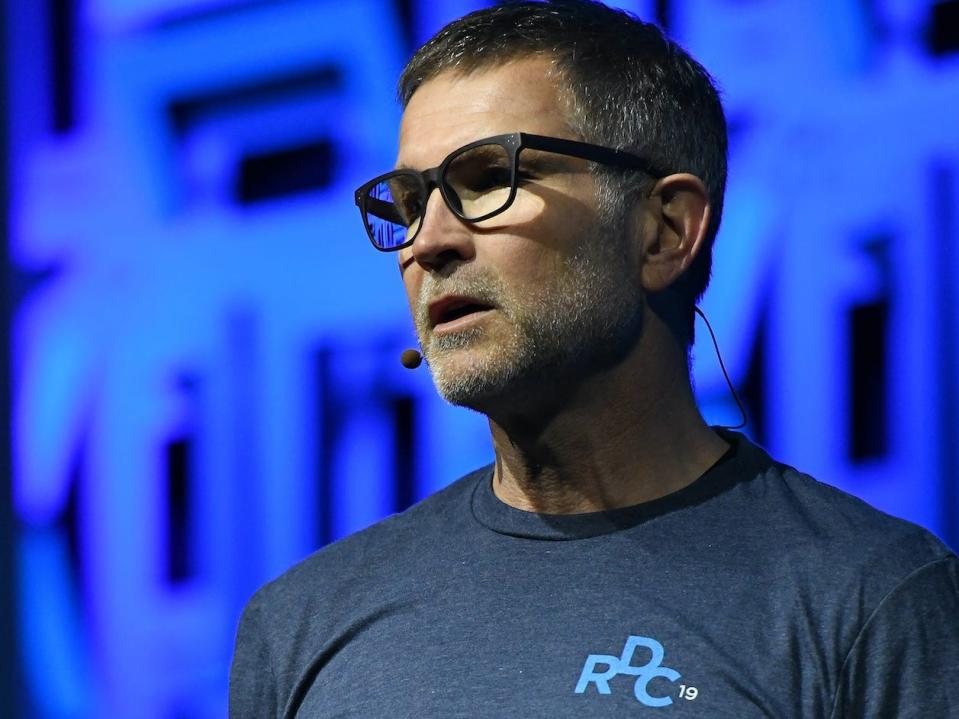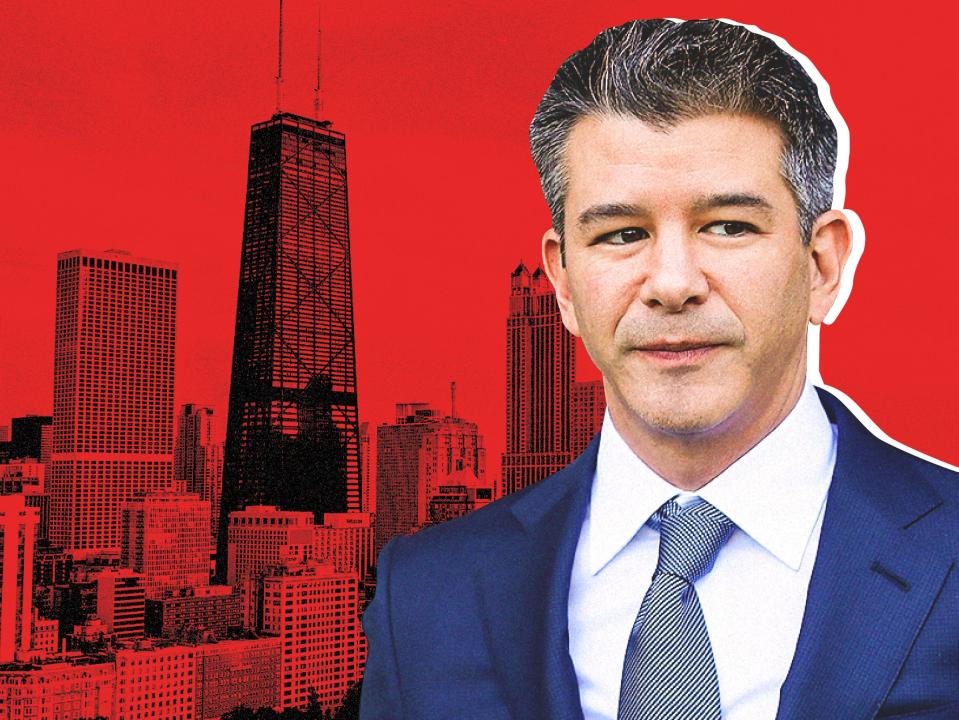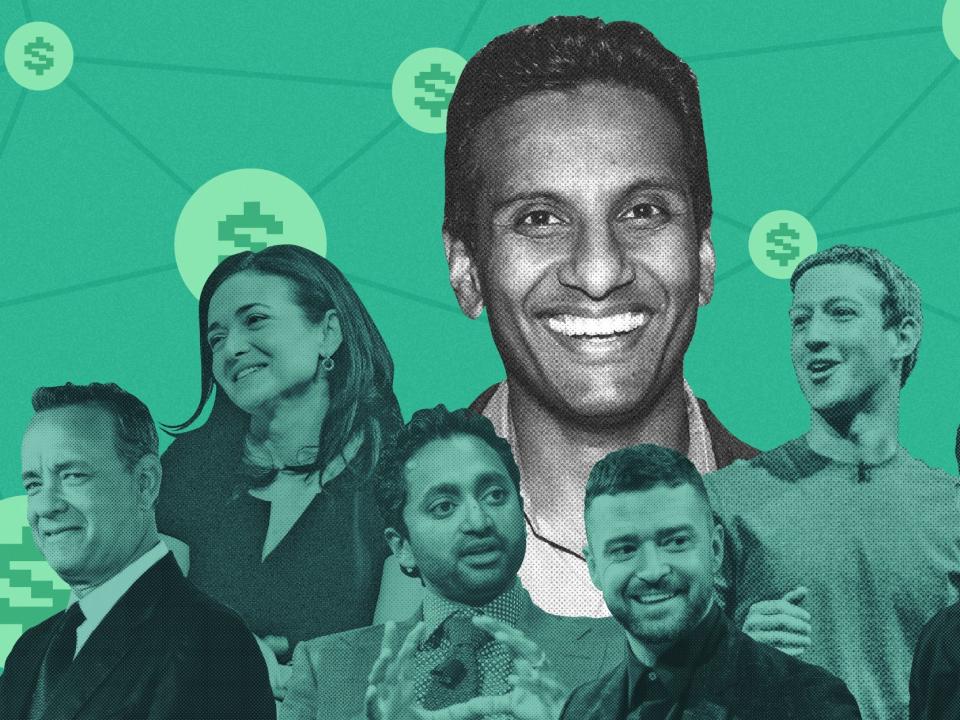Twitter's surprise counterattack to hold politicians accountable
Hello, and welcome to this week's edition of the Insider Tech newsletter, where we break down the biggest news in tech.
Wait, this is Saturday, you say. Doesn't this newsletter come out on Wednesdays? Not anymore. We're changing things up and moving to weekends, so you can have more time to enjoy all the great articles with your morning coffee - including:
How Mark Zuckerberg's banker built a secret Silicon Valley empire.
Roblox CEO Dave Baszucki on why he opted for a direct listing.
I'm your host Alexei Oreskovic. Hit me up with your thoughts, tips, rants and raves at aoreskovic@businessinsider.com.
Did someone forward this newsletter to you? Get Insider Tech straight in your inbox by subscribing here.
Soundtrack: This week's newsletter has been specially designed to be consumed while listening to William Onyeabor's "Ride on baby"
Twitter's surprise counterattack, or, when Big Tech tried to hold politicians accountable
For more than a year now, tech companies have been America's favorite political punching bags; attractive targets for politicians on the left and the right to blame for all manner of misdeeds, both real and imagined.
So what happened on Monday was both unexpected and ironic: Twitter sued Texas Attorney General Ken Paxton. Twitter alleges Paxton abused his power in launching an investigation into the social network's decision to ban Donald Trump.
Paxton issued investigative demands to Twitter, Google, Facebook and others in January, stating that the seemingly coordinated de-platforming of Trump after the Capitol riots, were a violation of the First Amendment.
Twitter's lawsuit against Paxton points out that the First Amendment does not proscribe private businesses from censoring undesirable speech, it prevents the government from controlling speech - as Paxton, a government official, appears to be doing by interfering in Twitter's moderation policies.
Twitter's riposte against the Texas AG follows a fusillade of lawsuits from voting machine companies in response to election rigging claims.
Dominion and Smartmatic have sued Rudy Guiliani - Trump's personal lawyer - as well as Sidney Powell, an attorney who was one of the faces of the Trump campaign's legal team, on the grounds that the pair's claims that the companies' rigged the 2020 election were defamatory.
The Dominion lawsuits seek a whopping $1.3 billion each in damages against Giuliani and Powell, as well as $1.3 billion from Mike Lindell, the MyPillow CEO.
It's an amusing turn of events in the wake of all the - often very legitimate - criticism of the tech industry's role spreading falsehoods and misinformation. Who would have thought tech companies would now be the ones fighting to keep others in check about sticking to the facts?
Speaking of the MyPillow guy, it seems the mustachioed CEO is expanding into the tech market and launching his own social network. It will be called Vocl (not to be confused with Völkl, the famous German skis), and according to Lindell, will be a cross between Twitter and YouTube but also "not like anything you've ever seen."
Parler, the "free speech" social network that was taken offline by Amazon Web Services in February, is back online but not welcome in Apple's App Store
And Trump himself is apparently preparing a splashy return to social media, potentially as early as this Spring, that a Trump advisor said will represent as "a tectonic plate shift."
Stay tuned over the next few months as we witness the birth of a new breed of right-wing, personality driven social media networks.
Zuck's Money Man - and Travis' new urban warfare
We've got two great reads for you to sink your teeth into this weekend. The first is a look at former Uber CEO Travis Kalanick's latest venture into so-called ghost kitchens, the shared kitchen facilities focused exclusively on takeout and delivery orders. As Meghan Morris reports:
For Kalanick, who served as Uber's CEO until 2017, CloudKitchens is a remarkable second act, cementing his reputation as someone with a unique understanding of how technology can transform business. It's also already causing clashes with local politicians and other groups, who see a repeat of the controversial playbook that Uber used to succeed.
Read the full story here:
When Silicon Valley's elite need someone to manage their money they go to Divesh Makan, the founder of Iconiq Capital. The secretive firm's clients include everyone from Mark Zuckeberg and Sheryl Sandberg to Eddy Cue and Chamath Palihapitiya. Rob Price and Meghan Morris spent months reporting on Iconiq, looking at its expansion into venture capital and real estate, its vaunted list of clients, and its mysterious founder.
"He wants to be the most influential person in the world," one former colleague said of Makan. "If you think 'The Wizard of Oz,' he wants to be the guy behind the curtain that nobody sees ... the person controlling the pieces."
You can read the full story here, including a list of Iconiq's celebrity clients and internal documents detailing all of the startups it's invested in:
Quote of the week:
"Our long-term investors are free to sell if they want. So we immediately launched into this very balanced market space."

- Roblox CEO Dave Baszucki tells Insider why the firm chose to list its shares on the NYSE via a direct listing instead of by doing a traditional IPO.
Snapshot: This is not a banana
When you're a video game console maker, everything looks like a controller.
That seems to be the case for PlayStation maker Sony, which recently was awarded a bizarre patent to turn bananas into game accessories.
The patent envisions using a system of cameras to magically turn plantain into peripheral.
Why would you want to use a banana when your PlayStation comes with a perfectly good controller?
According to Sony: "A limited number of peripherals may limit a player's ability to access all of a video game's features (e.g. multiplayer, VR, etc.). Even if a player is in possession of multiple peripherals, each of these may need to be charged regularly in order to be usable."
The solution is to grab a banana, or really, any nearby household object. The patent describes using a pair of oranges (one in each hand), and suggests that mugs and pens could also benefit from the technology.
Recommended Readings:
We identified the 175 most powerful people at Microsoft. Here's our exclusive org chart.
Not necessarily in tech:
Thanks for reading, and if you like this newsletter, tell your friends and colleagues they can sign up here to receive it.
- Alexei
Read the original article on Business Insider





